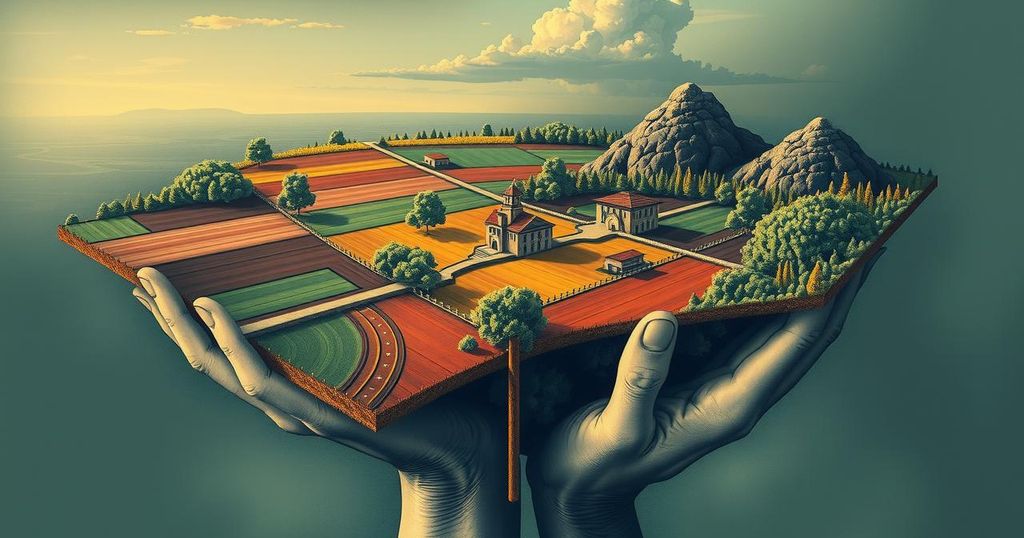President Trump accused South Africa of confiscating land and mistreating certain groups, stating he would cut future funding pending an investigation. This follows a recent South African bill allowing nil compensation for expropriated land. The issue remains contentious, reflecting historical inequalities from apartheid.
On Sunday, President Donald Trump accused South Africa of “confiscating” land and mistreating certain populations, declaring that he would halt all future funding to the nation pending an investigation into the situation. This statement amplifies the existing tensions surrounding land ownership in South Africa, a lingering issue following the end of apartheid.
South African President Cyril Ramaphosa recently endorsed a bill permitting the government to expropriate land with “nil compensation” under specific conditions. While Trump criticized these actions on Truth Social, alleging significant injustices occurring, Pretoria maintains that expropriations would not occur without prior agreement with property owners.
Concerns regarding South Africa’s land expropriation echo historical grievances, particularly referencing Zimbabwe’s past land reforms that saw white-owned farms seized without compensation. Trump highlighted the government’s handling of land ownership as being detrimental; however, specific examples supporting his claims were not provided in his comments to journalists.
The legacy of apartheid remains a critical backdrop in South Africa, where land ownership predominantly favors white citizens decades after its disbandment. The South African government continues to confront the issues arising from the 1913 Natives Land Act, which forcibly displaced numerous Black families from their lands during apartheid.
Figures like Elon Musk, a South African-born billionaire and Trump adviser, have voiced strong support for white landowners in these heated discussions. In the current political climate, numerous individuals who participated in Silicon Valley have connection ties to apartheid-era southern Africa, raising further scrutiny on their perspectives regarding land ownership and a history of inequality.
The land expropriation issue in South Africa has been a contentious subject for many years, particularly in the context of addressing historical injustices linked to apartheid. The government has been attempting to rectify these disparities, but proposals for land reform often meet resistance, especially from conservatives who fear the implications of such policies. In recent discussions, legal frameworks have been tailored to allow certain degrees of land expropriation without compensation. The intent is to foster equitable ownership among historically marginalized groups, though the execution remains deeply polarizing, with comparisons being drawn to historical precedents in neighboring nations. The involvement of prominent figures from South Africa in Trump’s administration highlights the complexity of these discussions, given their backgrounds and experiences living under apartheid. This intersection of politics, economic interests, and social justice underscores the sensitive dynamics at play in both South Africa and the broader international community.
In conclusion, President Trump’s accusations against South Africa regarding land confiscation have reignited debates surrounding historical injustices linked to apartheid and land ownership. As South Africa progresses with land reform initiatives, the government’s approach faces scrutiny both domestically and internationally. Amid these tensions, significant voices from the U.S. raise complex questions of equity, history, and justice, reflecting the multifaceted nature of this issue.
Original Source: www.france24.com




